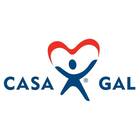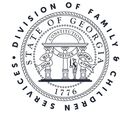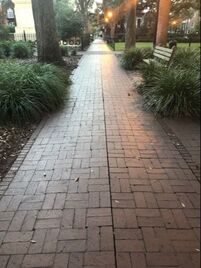 The Journey The sunlight filtered through the trees on Monterey Square, illuminating the brick path in front of me. It was August 2018, and as I left the old CASA office, I took a photo of the path and the sun peeking delicately between the Spanish moss and branches. I walked confidently down that straight path, prepared to be a change agent, one child at a time. My decision to become a CASA Volunteer grew over time. In 1995, I graduated with my M.S. in social work. I began working with people with dementia, Alzheimer’s, and various mental illnesses. I witnessed first-hand abuse and learned to navigate a government system full of red tape. This is when I first heard of CASA, a Court Appointed Special Advocate - a person who advocates for the best interest of a child in foster care. A seed was planted in my heart. After my son was born, I moved to part-time. Two years later, our twin daughters were born. My husband’s career began to take off, resulting in 11 career moves. We decided it was best I stayed home with the children, which was no easy task. I became an expert at investigating communities, school systems, doctors, and relocating our family quickly through the years. When the twins were in first grade, we learned that one was on the autism spectrum with a diagnosis of Asperger’s Syndrome. Although I suspected the diagnosis, it was difficult to accept. But it was a relief to finally have answers. Now I had a path to follow. I became a fierce advocate for my daughter. Each move brought new challenges as I transitioned each child into a new environment. I quickly noticed that not every child has a parent who knows how to advocate. It was evident that children with hidden disabilities, such as autism, easily slip through the cracks and do not receive services to succeed. Bloom Where You Are Planted Remember the “CASA seed” planted 20 years ago? In July 2018, we were again uprooted and replanted in Savannah. As a social worker, I wanted to be of service to others. I recalled my love of CASA’s mission and soon discovered Savannah CASA. Before I finished unpacking the boxes, I had filled out an application. My journey as a CASA brings paths, seeds, and flowers to mind. Unlike that straight, sunlit path that welcomed me after I first left the CASA office, the path of a Volunteer is not always well lit. As Volunteers, we press on because we see narrow rays of sunlight. We tend to our relationships with the CASA children. We plant seeds in compacted soil, and we find ways to allow struggling roots to push through and grow into a world where a child has acceptance and belonging. As a CASA Volunteer, I have advocated for four children in three years. My last two children were commercially sexually exploited. They participate in HOPE Court (Healing Opportunities Through Positive Empowerment) - a new, incentive-based court for youth experiencing commercial exploitation. During the first year of HOPE court, a team of exceptional individuals worked tirelessly cultivating the seeds, adding the right combination of nutrients to grow a program that flourishes. The challenges I faced were beyond anything I experienced as a social worker. Donning my most durable garden gloves, I started digging and sifting through the weeds to learn anything and everything I could about my CASA children and their families. During the hardships, I have never felt alone because I am blessed with the support of an exceptional CASA team and a wonderful, patient, and knowledgeable Coordinator. We walked along this new path, learning the twists and turns together. Remember that straight, sunlit path that welcomed me to my CASA journey? COVID has forced a reevaluation of my life’s purpose, and I was led into new shifts of direction along the path I was walking. My love of volunteering has never wavered. I remind myself that I am making a difference. In the Fall of 2021, an opportunity was presented to transition from CASA Volunteer to CASA Staff. Yet I paused. Much of my time has been devoted to supporting my children and aging parents; I had to really think about accepting a position after twenty years away from the workplace. The big hesitation? As a Volunteer, I advocated for my two girls in HOPE Court, and I was unwilling to walk away from these relationships. I wondered if I could be both a Volunteer and Coordinator? As a Coordinator, I wouldn’t have direct contact with children and families. Yet I understood that I could impact many more children by guiding and supporting multiple volunteers. Upon reflection, I accepted the position and started walking a new path. 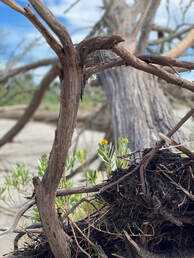 Together, my Volunteers and I find answers and solutions. We plant seeds in the lives of children in the hope that one day they will remember the CASA who advocated for their best interest and will grow into adults who will plant seeds of hope in others. I am reminded of a recent walk along the beach as I write this blog. There, I noticed flowers growing from a fallen tree. Among the driftwood from hurricane damage, life emerged in an unusual place. As a Volunteer and now as a Coordinator, my goal is to scatter seeds of hope in children’s lives, our community, and other Volunteers’ lives. I am an advocate for CASA. I plant seeds because you never know where a flower may bloom. About the Author
0 Comments
My Expectations. When I imagined being a CASA, my dream was to form a meaningful relationship with a child in crisis who needed an encouraging friend. I would be someone who really knew them and be their support during a stressful time. I believed that I could make a difference, even if I didn't understand all aspects of the child welfare system. I would study, take notes, and learn. I would ensure that my child would get everything needed after being removed from the only home they have known.
I had heard that "the system is broken" my whole life. I believed I found the perfect way to be a part of the solution and make a difference from the inside. I imagined deep conversations with my child as I told stories of my own childhood and how I enjoyed outings for ice cream on special days to celebrate. As I went through CASA training, I couldn't wait to meet the child I would get to know and love. I would earn their trust with tender smiles and soft, kind words full of hope. The Journey Begins. Then I was assigned my first case. I certainly never expected to be given a sibling group of three special needs, non-verbal children, one of whom we discovered later was nearly deaf. I thought, "Okay, how am I going to have deep conversations with these children and learn how they feel? How can I explain what is going on when they don't have language or cognitive ability to understand the situation?" What I had imagined was nowhere close to reality. I began to think of creative ways to spend non-verbal time with the children during our monthly visits. Stickers, paper crafts, picture books, and playing catch with a big bouncy ball took the place of heart-to-heart talks. I discovered that smiles and fist-bumps will transcend language barriers. Committed and Caring Adults. Since I could not speak with the children, I talked to their foster mom and other significant adults in the children's lives. This included their DFCS case manager, teachers, behavioral aids, interpreters, occupational and speech therapists, transporters, audiologists, psychologists, doctors, and dentists. Most of these adults will temporarily be in their lives, and some will be more consistent. In short, there are A LOT of new grownups in their lives, and A LOT of big changes since they came into care. I was committed to figuring it all out. Above all, I am grateful for the faithfulness of their foster mother. Taking good care of children with special needs 24/7 would be difficult for anyone, but she is fiercely dedicated to providing stability and consistency. They have developed and grown because of her enduring love and care. I know that sometimes foster children get moved around or even separated from their siblings, causing more trauma. However, "my" kids have been allowed the necessary time to heal and learn. Foster parents like her are the world's true heroes. She has shown me what it really means to love. I am determined to be consistent in the children's lives. As a CASA, I will have this case as long as they are in foster care. We may not have meaningful talks, but I believe they know I am on their side. And I've not given up on the hope of conversations yet! As they are being taught ASL, I am learning sign language myself. Now, my dreams include giving sign language explanations when they don't understand and, importantly, asking them directly about their needs and hopes. Only God knows what I will do with this new skill. These special children have taught me how to change my expectations when necessary. I have reaped benefits that I couldn't even imagine. I also have deep gratitude for the juvenile court judge in the children's case. He shows patience, compassion, and respect to the people in his courtroom. Even after hundreds of cases, he remembers the humanity of the people before him who are hurting. He rises above the fray to ensure justice for children who can't speak up for themselves. The wisdom and rightness of his decisions impress me. He shows me how powerful humble discernment can be. I'm Still Learning. My case is so complex, and there is heartache in the messiness. While the system isn't perfect, I have hope for my CASA kids. They have a capable, caring team of adults on their side. As a CASA, I am a part of the solution. I advocate for ways that can impact these children's lives for the better. I have learned that being their advocate is the most meaningful relationship I could have, even if we never get to have that heart-to-heart conversation. |
Brightside
|
Brightside Advocacy761 Wheaton Street, 5th Floor
Savannah, GA 31401 |
Links |
Contact Us |
FUNDING PROVIDED BY:
Website by FreshWorks Media


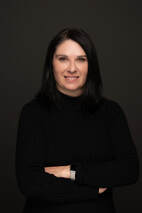
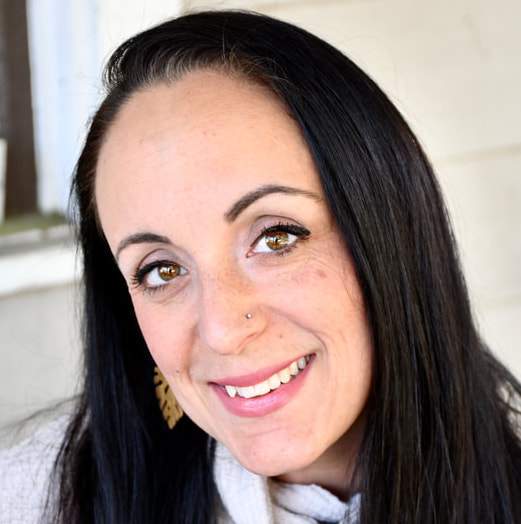
 RSS Feed
RSS Feed



